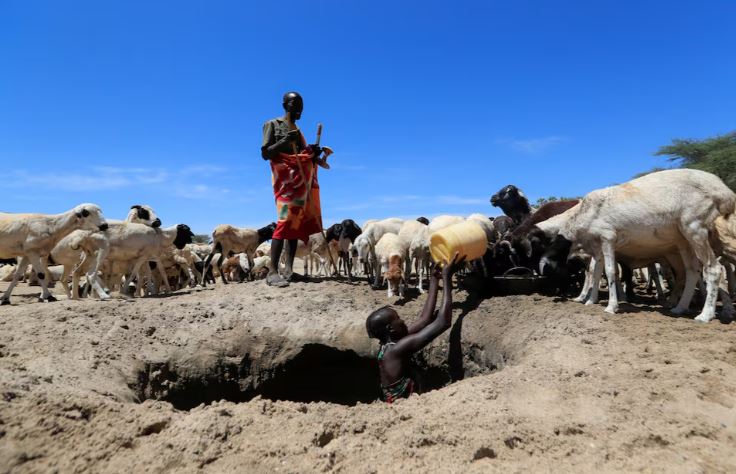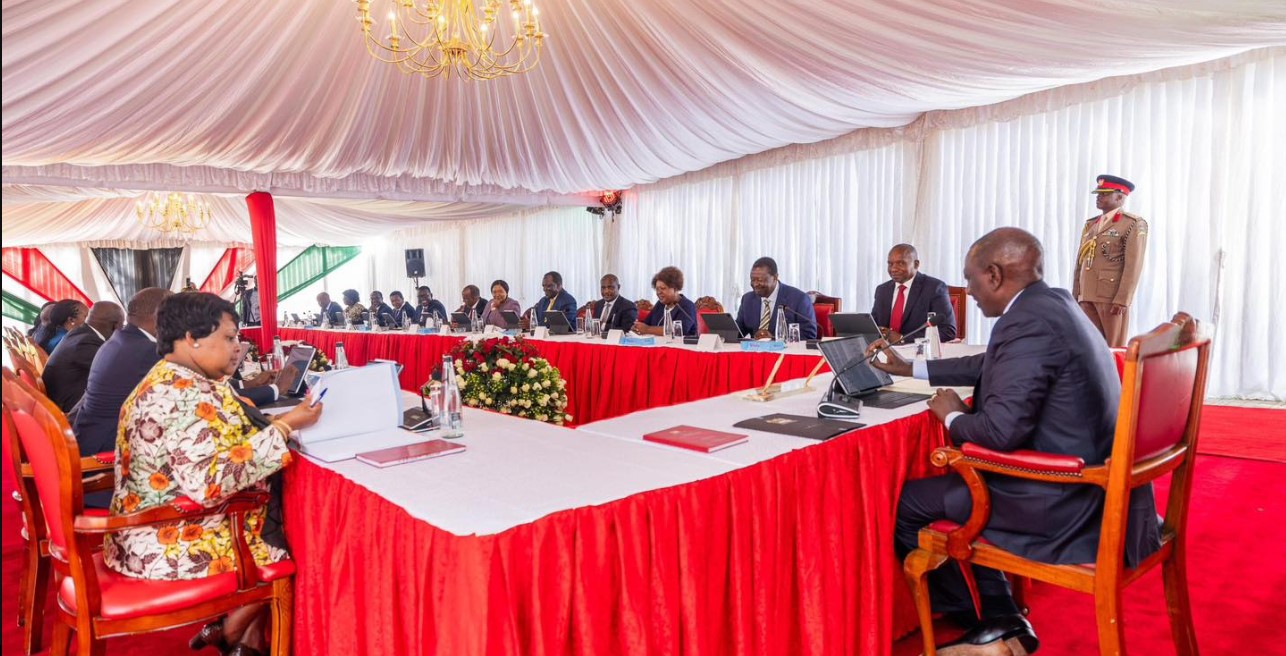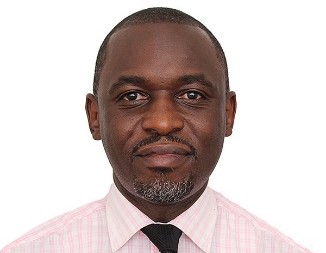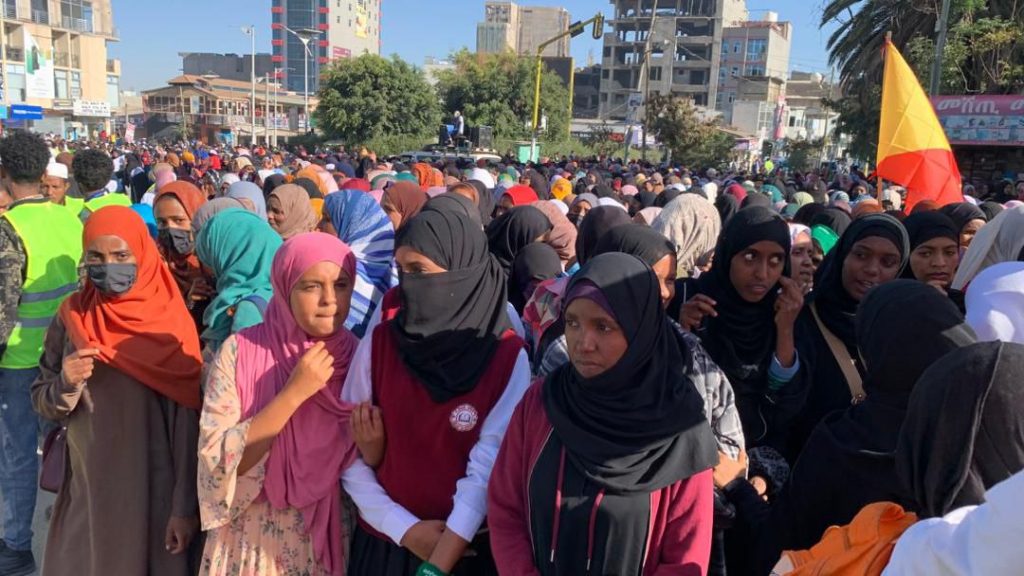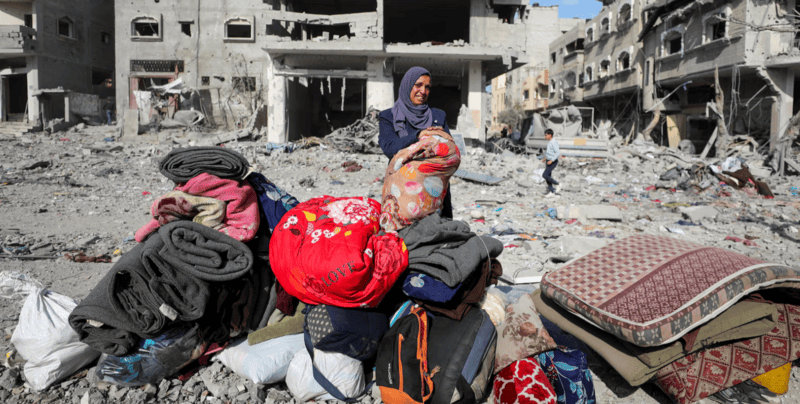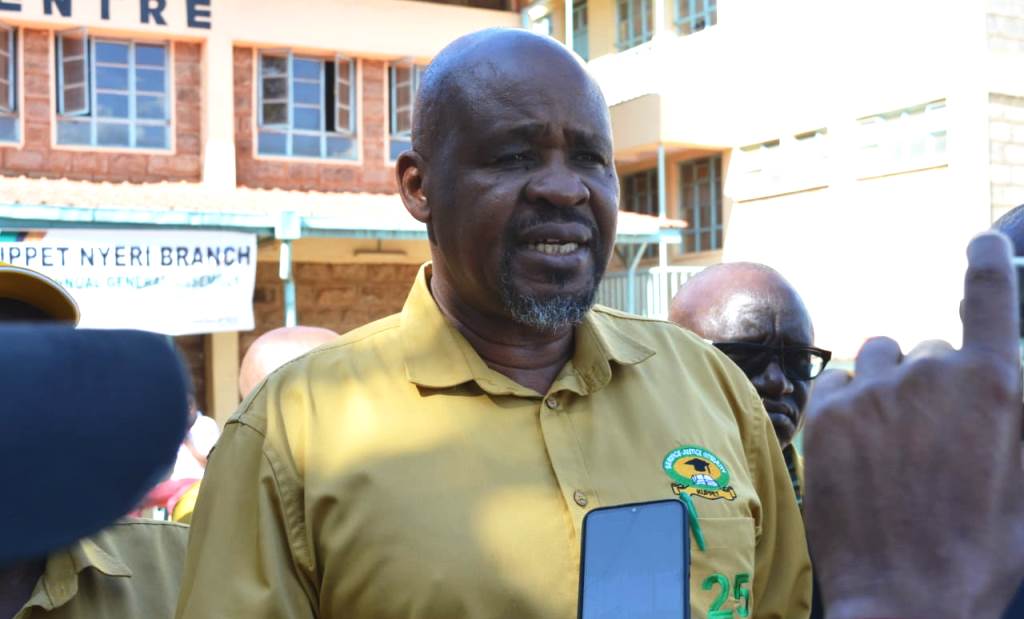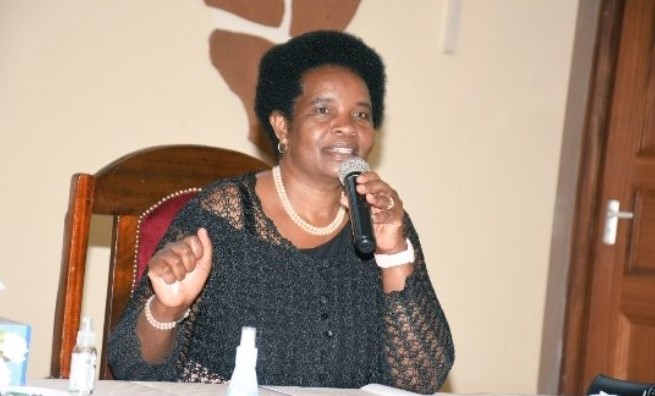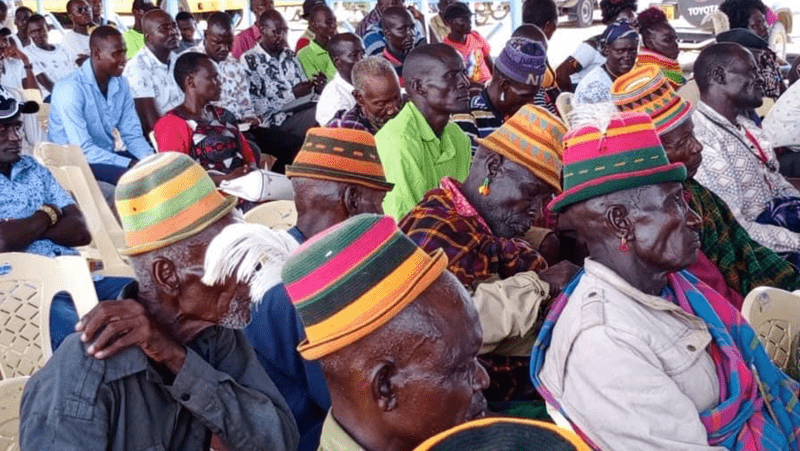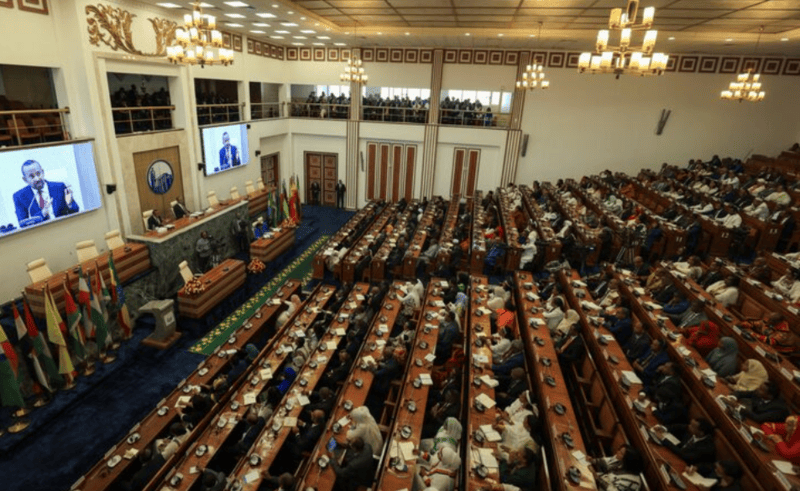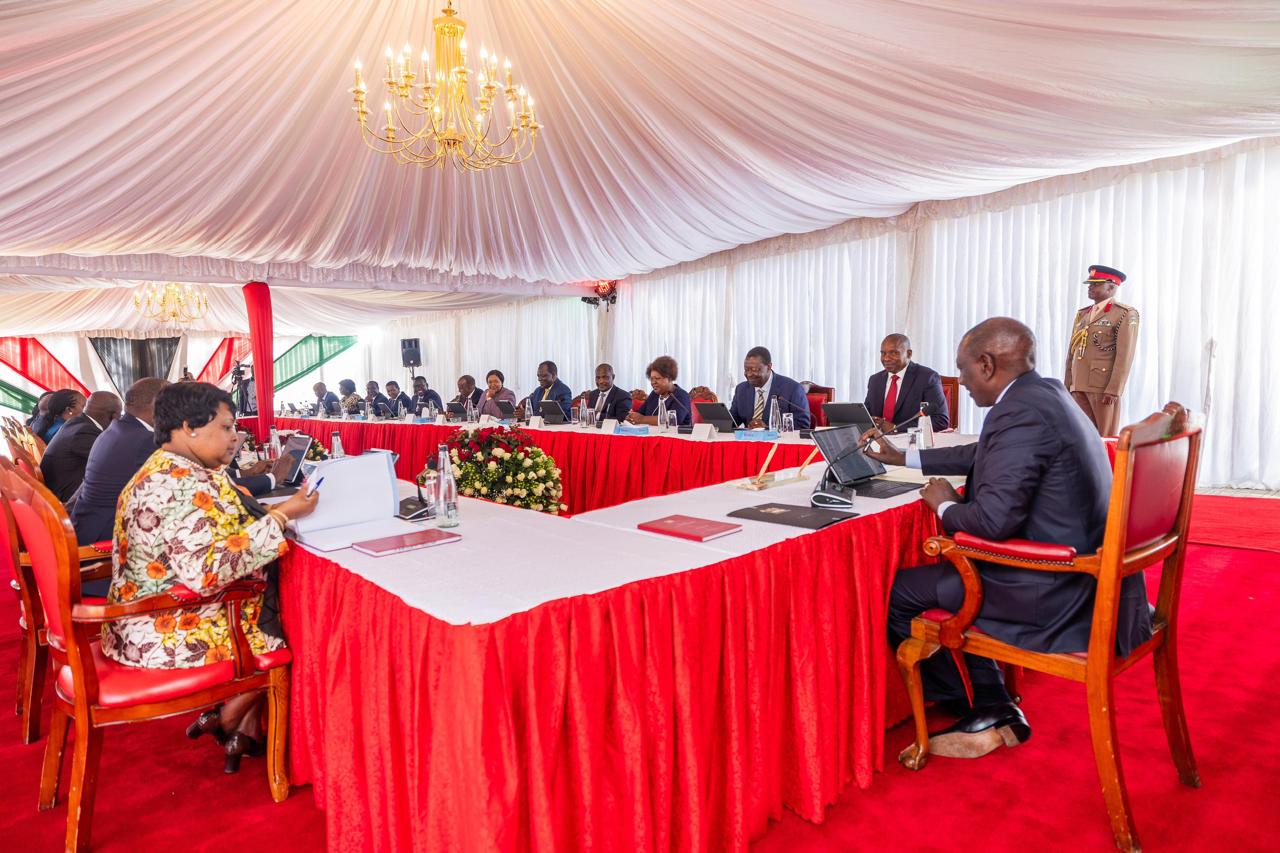How Africa's young people living in urban areas are changing political culture
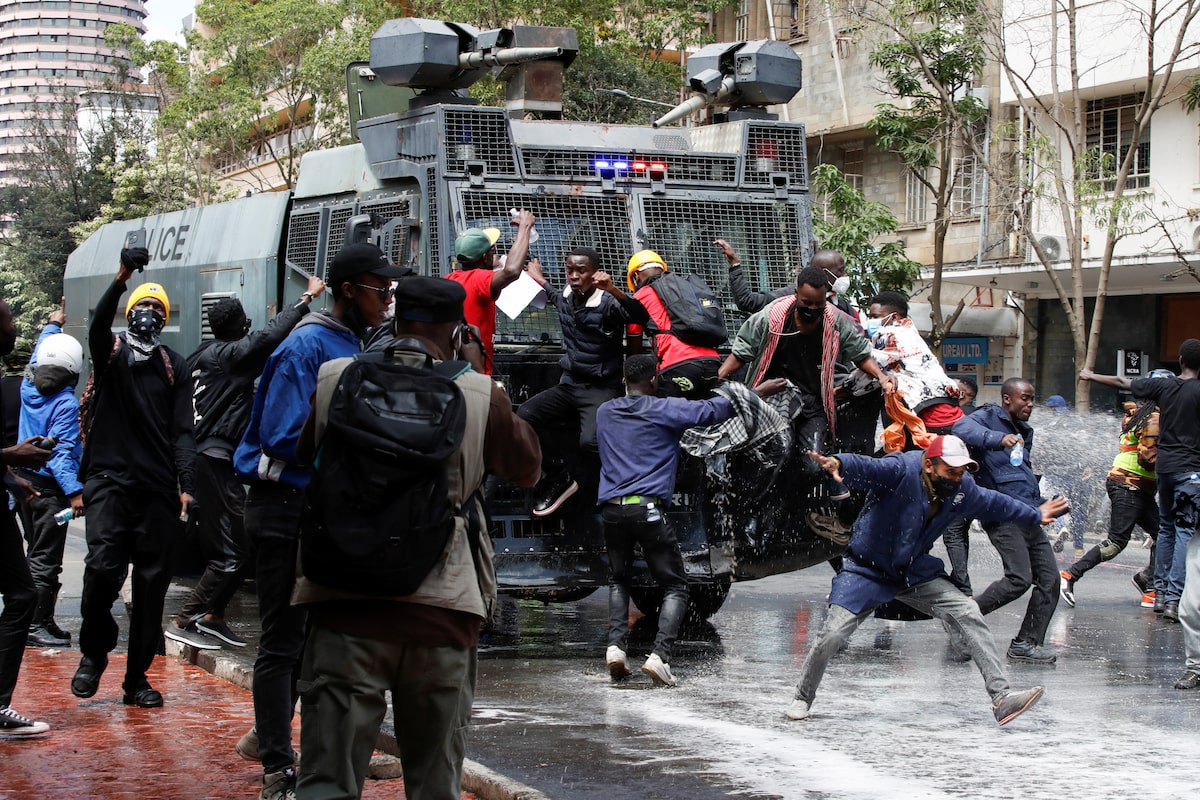
Many live in informal settlements under precarious conditions and have an unconventional approach to creating change.
Two trends will shape Africa's future: the rapid growth of cities and its youth boom. More than two-thirds of people on the continent are under the age of 30. And it's projected that from 2035, most of these young people will live in cities.
This could also change the political situation, says Titus Kaloki, coordinator for the Just Cities project at the Friedrich Ebert Foundation (FES) in Kenya.
More To Read
- Kenya abductions: The powerful legal shields citizens and courts can use – Expert
- How Mukuru rights group uses murals to protest against bad governance
- Women's hopes dim as Parliament pushes back on top-up seats proposal
- Opinion: Religious leaders must protect places of worship from political rhetoric
DW talks to Kaloki in the German capital, Berlin, where he is attending a workshop run by FES, a German political foundation, on political participation in African cities and the role of young people.
At the workshop, Kaloki presents photos of massive protests held in Kenya earlier this year that were attended mainly by Gen Z, the generation born between 1995 and 2010.
The protests forced President William Ruto to stop tax increases on bread, oil and petrol and to reshuffle the cabinet.
"So what these Gen Zs have been able to achieve is to start demystifying complex things like tax laws and legal documents — making them readable, understandable, translating them to different languages," Kaloki says.
The demonstrators didn't have a central organisation or leading figure. Rather, they were motivated by an issue and mobilised through social media.
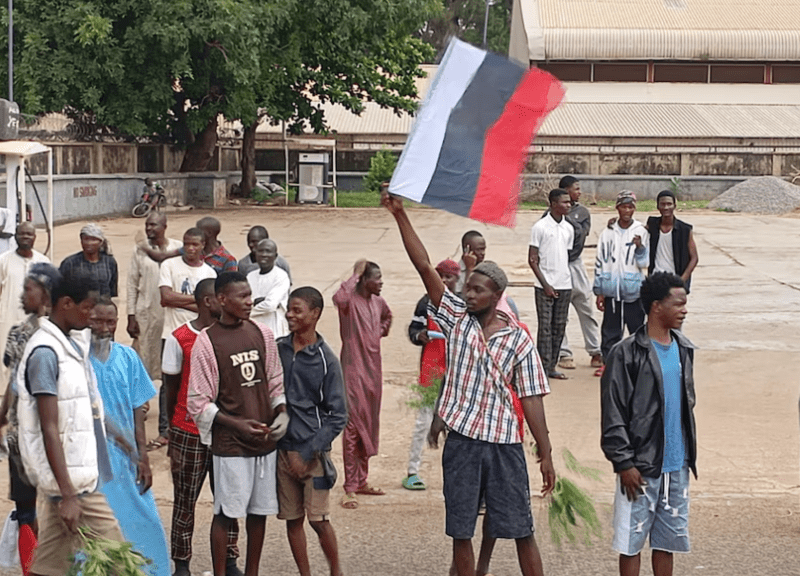 A man holds a Russian flag, as Nigerians protest in the streets during anti-government demonstrations against bad governance and economic hardship, in Kaduna state, Nigeria August 5, 2024. (Photo: Reuters)
A man holds a Russian flag, as Nigerians protest in the streets during anti-government demonstrations against bad governance and economic hardship, in Kaduna state, Nigeria August 5, 2024. (Photo: Reuters)
From reactive to proactive
These young urbanites are also increasingly aware of the need to share political context with their peers in rural areas, adding that the movement continues to develop from reactive to proactive, he says.
"We can certainly look forward to seeing more protests in the coming decades," says Lena Gutheil, a researcher at Megatrends Africa within the German Institute of Development and Sustainability.
Her observation is that young, urban Africans avoid formal forms of democratic participation in that they rarely vote or join political parties. Instead, young Africans prefer to protest.
This is an expression of their frustration, Gutheil says. Only one in six young people in Africa have a stable job, while a third is unemployed.
"The feeling of not being part of society” is spreading, because even if the state provides support, the difference between their circumstances and those of wealthy city neighbourhoods is huge, Gutheil says.
 Kenyans demonstrating against the Finance Bill 2024 in Nairobi on June 25, 2024. (Photo: Reuters/Monicah Mwangi)
Kenyans demonstrating against the Finance Bill 2024 in Nairobi on June 25, 2024. (Photo: Reuters/Monicah Mwangi)Kenyans demonstrating against the Finance Bill 2024 in Nairobi on June 25, 2024. (Photo: Reuters/Monicah Mwangi)
‘Populist appeals’
Gutheil sees this as dangerous and expects an increase in "populist appeals" to young people living in the continent's informal settlements.
Kaloki is familiar with life in these settlements.
A 2022 FES study found that such neighbourhoods are the result of the colonial division of urban space. Almost 70 per cent of informal settlements fulfil an important economic function and are the real drivers of growth, he says.
Unfortunately, many are not recognised, which is why they don't participate in the official political process, he adds, explaining that residents don't attend town hall meetings and hold back from interacting with local politicians.
As for Gutheil, she believes "democracy needs to deliver so that people are once again more convinced that the system works, emphasising that African governments must provide infrastructure and public goods, for example.
Kaloki focuses on new platforms for civic education that explain the importance of participation and how to get involved. But in a comment addressed to European partners, he emphasises that fair use of resources is needed as well.
"We are practising democracy on an empty stomach," Kaloki says, adding that an honest dialogue on decolonised relations must be resumed.
 Demonstrators gesture as police use tear gas to disperse protesters during a demonstration against the Finance Bill 2024 in Nairobi on June 25, 2024. The protests have largely been spearheaded by Gen Z. (Photo: Reuters)
Demonstrators gesture as police use tear gas to disperse protesters during a demonstration against the Finance Bill 2024 in Nairobi on June 25, 2024. The protests have largely been spearheaded by Gen Z. (Photo: Reuters)
Rethink European Union’s approach
The European Union needs to rethink its approach to promoting democracy, Kaloki says, as it isn't enough to push for democratic values.
"But there is a lot of potential for strategic funding, design of public goods and services which can come out with win-win-situations," he says.
For example, Kaloki says, a European company like Siemens could use EU funds to build fast public transportation in Kenya's capital, Nairobi.
"They would not only gain in profit, but they would also help the city of Nairobi to achieve a major milestone that would unlock a lot more economic opportunities and reduce losses in the economy," he says.
Better public transport would benefit a great many people, as almost 40 per cent of the city's residents currently have to walk, he adds.
There is much at stake for the future. "I see hope, but I'm also anxious," Kaloki says.
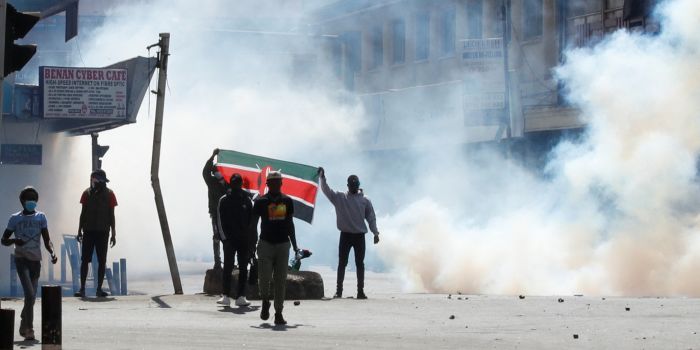 Demonstrators react as police use tear gas to disperse them during a demonstration against the Finance Bill 2024/2025 in Nairobi on June 25, 2024. (Photo: REUTERS/Monicah Mwangi)
Demonstrators react as police use tear gas to disperse them during a demonstration against the Finance Bill 2024/2025 in Nairobi on June 25, 2024. (Photo: REUTERS/Monicah Mwangi)
Inspired by young Kenyans
On the one hand, there is networking and appreciation between people in Nigeria and Uganda, who have been inspired by young Kenyans and launched their own protest movements, which he calls "a good thing to share in a democratic way."
However, Kaloki is concerned about the authoritarianism that has taken hold in the Sahel region following military coups, for example.
Democracy in Africa is also under pressure due to rampant disinformation both on- and offline.
It will be important to pay close attention to how the Gen Z movements mobilise, communicate and protect themselves from disinformation and echo chambers, he says.
Top Stories Today

